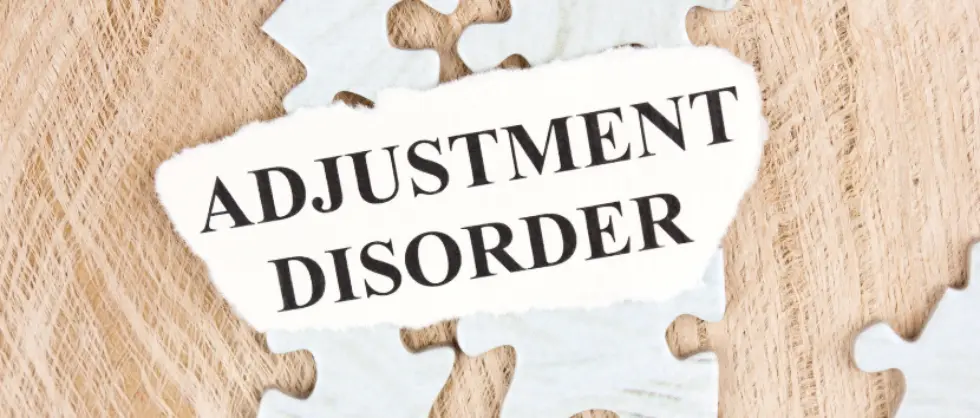Have you ever noticed your child is having a strong reaction to stress that creates changes in their behavior? Some children are very susceptible to changes, and they struggle when they go to a new school, move to another house, lose a family member, or when they experience a traumatic event.
Other times, it could be problems that arise at school or parents who are in the middle of a divorce.
Understanding How Stressful Situations May Impact Your Children
From the expressive play of young children revealing their fears and anxieties to the more complex behavioral changes seen in teenagers, stress significantly impacts children and their mental health.
Young children may communicate their fears and concerns through play. They may complain of stomachaches or headaches and refuse to go to school or participate in activities that cause them stress.
Middle school children may have trouble sleeping, cry often, worry or feel nervous about things that will happen, do not eat enough, and sometimes have difficulty concentrating at school. In addition to these symptoms, teens may have trouble controlling their impulses and present angry outbursts.
The Prevalence of Adjustment Disorders
The symptoms that I described above are known as adjustment disorders, which can start a few months after the stressful event happens and can last more than six months, especially when the stressful event is still happening.
Unfortunately, adjustment disorders are extremely common. “A study in the US estimates that 5% to 20% of outpatient mental health visits were for adjustment disorders.”
You may ask yourself, how can I support a child who has difficulties adjusting after a stressful event?
Treatment Options for Adjustment Disorders
Play therapy and Talk Therapy, are some really good treatments for adjustment disorders because they provide a safe space where children:
- Learn how the stressful event has affected them.
- Provide emotional support.
- Learn management and coping skills to deal with childhood anxiety and stress.
- Learn about mindfulness techniques for children that provide more tools and help them regulate themselves.
Strategies for Parents of Children With Adjustment Disorders
Also, here are some good parenting strategies for stressful situations to understand how to support their children at home:
- Keeping a predictable and safe routine.
- Talking in advance about new things they may encounter at school, and brainstorming ideas on how to deal with them.
- Providing a safe space where they allow children to communicate their fears. “It is ok to cry.”
- Validating their emotions and wondering with them about their feelings.
- Helping them stay connected with friends and family members who offer support in healthy ways.
- Create a good sleeping routine.
- Avoiding the use of tablets or cellphones 30 minutes before they go to bed.
- Discussing how they have confronted past experiences where they successfully overcame the obstacles they encountered.
- Teaching mindfulness techniques where children learn how to breathe to reduce stress.
- Regular physical activity helps kids produce their brain’s feel-good neurotransmitters, called endorphins. It also increases self-confidence, helps their sleep, helps them relax, helps them focus on their body’s movements which helps them worry less about their thoughts.
- Try to stay away from competitive sports at the beginning. Instead, swimming, walking, running, hiking, practicing yoga, and dancing may be some good activities for them to practice.
- Finding activities that bring them joy.
Embracing the Path to Wellness: Next Steps
Finally, it is recommended to seek medical attention and the support of a mental health provider when your kiddo is experiencing feelings or behaviors that seem stronger than usual, out of control, or only after a stressful event.
As a parent, you will also have the space you need to discuss your concerns with the mental health provider, so you have more tools to help your child regulate themselves.
We’re here if you need help with these things. Start My Wellness is an alliance of therapists, psychiatrists, and other mental health professionals dedicated to helping people be the best versions of themselves. Book a therapy appointment today.
Author: America Gasca, LMSW
Child and Adolescent Psychotherapist
References:
Cleveland Clinic: Adjustment disorders. (Last reviewed 10/06/2024). Accessed 01/03/2024
National Library of Medicine: Adjustment Disorder: Current Developments and Future Directions. (Published 07/16/2019). Accessed 01/03/2024
Start My Wellness: Child & Teen Therapy. Accessed 01/11/2024
Mayo Clinic: Stress management. (Published 08/02/2022). Accessed 01/03/2024
Kaiser Permanente: Adjustment Disorder in Children: Care Instructions. (Last reviewed 06/24/2023). Accessed 01/03/2024

Author: America Gasca, LMSW
Looking for a Therapist? Start My Wellness has highly experienced Licensed Therapists that are currently accepting new patients.


